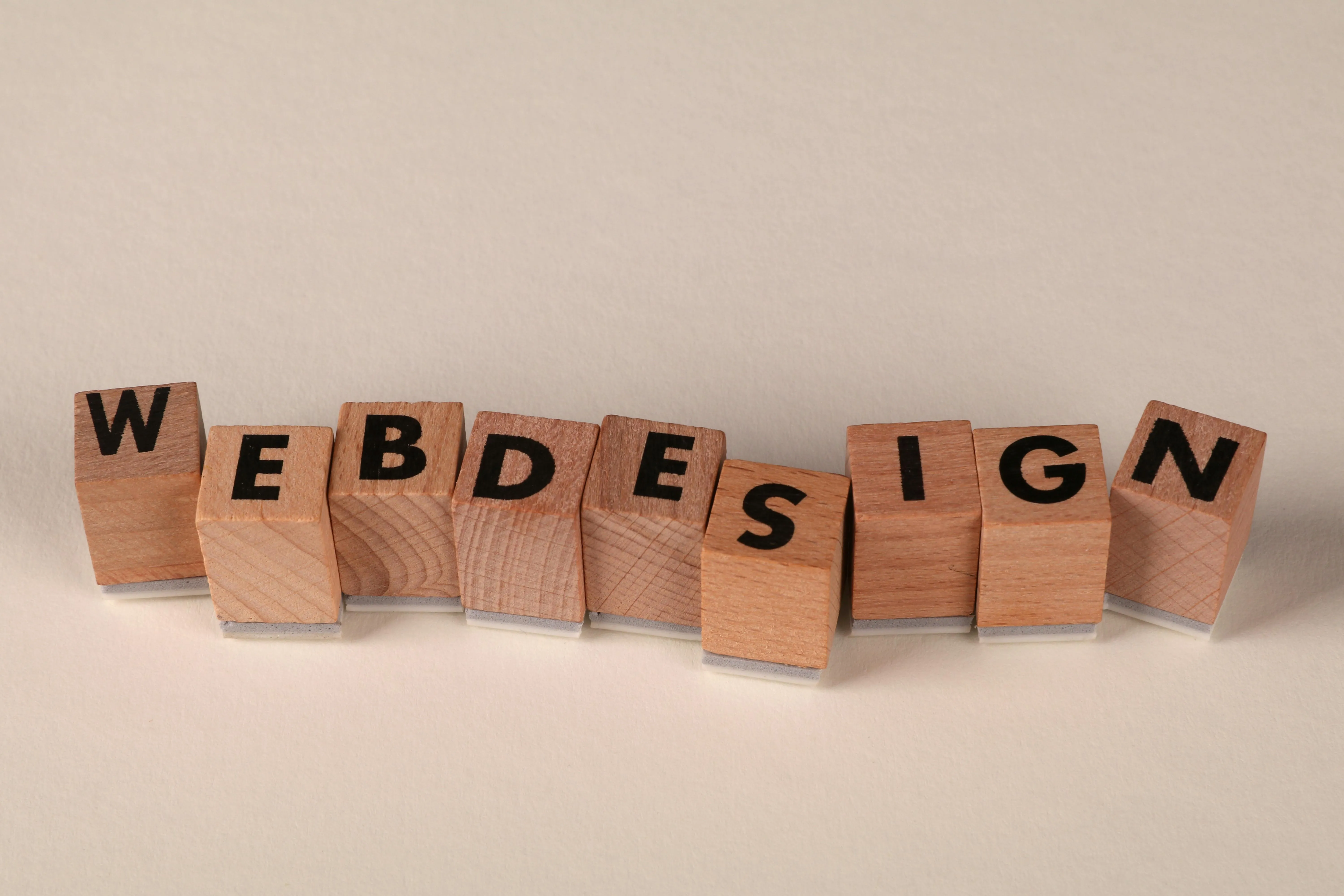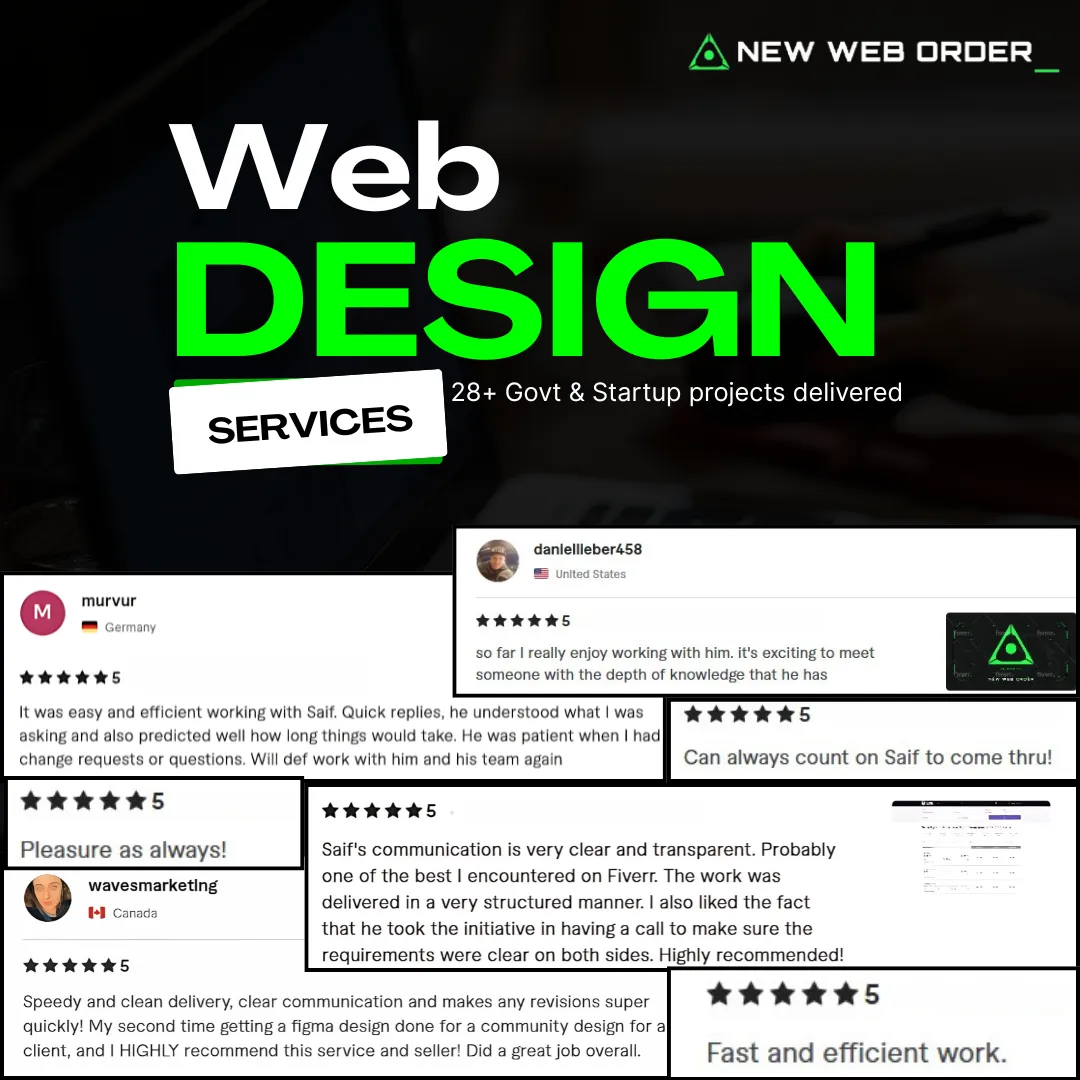Finding the right web design company is one of the most important steps in building your online presence. Whether you're launching your first website or revamping your existing one, a good web design agency can play a crucial role in ensuring your site not only looks professional but also performs effectively.
But with so many options out there, how do you know which one is the right fit for your business?

This blog will guide you through practical, actionable tips to help you make an informed decision when choosing a web design company. We'll cover what to look for in their portfolio, the importance of client reviews, insights into their communication style, and much more.
By the end of this guide, you’ll have a solid checklist to ensure your final choice leads to a successful outcome for your website project.
1. Match the Agency's Size and Prestige to Your Company

Not all agencies are built the same, and finding a good fit can save you time and frustration. Choose a web design company whose size, capacity, and reputation align with your business needs.
A large, well-known agency may offer prestige, but they often prioritize big-budget clients, leaving smaller businesses overlooked.
On the other hand, a smaller agency might offer more personal attention but lack the capacity to meet the demands of a larger organization.
The key is to find an agency that sees your project as a priority, not an afterthought ensuring you get the focus and expertise your business deserves.
2. Evaluate Their Portfolio and Track Record
A company’s portfolio is often the best reflection of their skills and capabilities.Here’s how to assess it effectively:
Check for Alignment with Your Style and Goals
Look for visual designs that match the tone and style you want for your website. If you’re a tech startup, you might want a modern, minimal aesthetic. On the other hand, if you're an artisan bakery, something warm and creative might suit you better.
Evaluate Functionality
Great design is more than just good looks it’s about performance. Visit live sites from their portfolio and assess how well these websites function. Do they load quickly? Are they mobile-friendly? Do they offer a user-friendly experience?
Run Tests on Referred Websites
Go a step further by testing some of the agency’s completed sites using tools like Google PageSpeed Insights or Lighthouse. This helps you evaluate site speed, accessibility, and adherence to best practices.
Look for Variety
A strong portfolio showcases versatility. Be cautious if all their websites look similar, as that may indicate a rigid or template-driven approach. Ideally, the company should be able to adapt to different industries and customer requirements.
Pro Tip
Ask the agency about the specific challenges they overcame in their portfolio projects. Their answers can reveal valuable insights into their problem-solving skills.
3. Check Client Reviews, Referrals, and Testimonials

What do past clients have to say? This can give you a realistic idea of what it’s like working with the web design team.
Explore Online Reviews
Look for reviews on independent platforms like Clutch or Trustpilot. These sources tend to be more reliable than testimonials displayed on the company’s own website.
Pay attention to recurring themes if most reviewers praise their communication or meeting deadlines, it’s likely a strong area for the agency.
Ask for Client References and Referrals
Don’t hesitate to request references from the company itself. Speaking directly to past or even former clients and staff can provide a comprehensive, 360-degree view of the agency’s reliability and performance.
Red Flags to Watch For:
● Poor communication is frequently mentioned.
● Complaints about missed deadlines or hidden costs.
● Limited or no presence on customer review platforms.
● Agencies that don’t register domains in your name, restrict access to hosting/admin, or fail to listen to your needs.
4. Evaluate Communication and Project Management
Successful web design projects hinge on clear and responsive communication—and solid project management.
Communication Counts from the Start
Your first interactions can be telling. Are they asking relevant questions about your business goals, target audience, and design preferences?
Or are they rushing to offer solutions without understanding your specific needs? Great work must be paired with excellent communication for a successful partnership.
Understand Project Management Processes
Ask the company how projects are organised. Do they assign a dedicated point of contact? What tools do they use for collaboration (e.g., Trello, Slack, or Basecamp)? A clear, methodical process reduces the likelihood of miscommunication and delays.
For a deeper dive into finding the right partner for your next project, explore this in-depth guide on how to choose the right web design agency.
Helpful Questions to Ask:
● Who will be working on my project, and can I communicate with them directly?
● How will progress updates be shared, and how often?
● How are changes and revisions handled throughout the process?
5. Understand Their Process and Team

Learn about how the agency works internally and with clients so you know exactly what to expect. Find out who will actually be working on your site will you have access to the designers and developers, or just a project manager?
Look for agencies that can customize their process to suit your needs (rather than forcing you into a one-size-fits-all workflow), and ask about their approach to collaboration and flexibility.
6. Start with a Trial Period
Before making a major commitment, try to negotiate a low-cost or no-cost trial period. This allows you to evaluate the agency’s work ethic, communication, and quality without risking your entire project budget.
A trial project or initial sprint can reveal how the agency really performs and if they’re a good fit for your long-term needs.
7. Look for Agencies Offering Full Solutions

Consider agencies that can go beyond basic design and development. For example, companies like New Web Order provide a full suite of services including website development, UI/UX design, mobile app development, SaaS development, and digital marketing.
If you want a partner who can handle not just your website, but also your visual branding, marketing strategy, and long-term digital growth, prioritize those with a holistic approach.
This kind of partnership helps ensure your entire digital presence is supported now and as your business evolves.
8. Focus on Long-Term Support and Needs
Your website isn’t just a short-term investment; it needs to perform and grow with your business.
Choose an agency that not only builds the site but can support you in the long run whether that’s with maintenance, training, new features, or broader marketing help. Look for someone who wants to be a strategic partner, not just a vendor.
Easy Content Management
Ask if the website will be delivered with an intuitive Content Management System (CMS) like WordPress or Shopify. This ensures you can update text, images, and features without always needing professional help.
Scalability for Growth
Check if the website is built to scale. For example, if you plan to add an eCommerce store or blog in the future, can the current framework handle it?
Onboarding and Training
Once your website is done, will the company offer training on how to use it efficiently? Businesses often overlook this step, but it’s essential for smooth, effective website management.
9. Get Clear on Costs and Contracts

Budget transparency is crucial. Nobody likes unpleasant surprises when the final bill arrives.
Understand Their Pricing Model
Web design companies typically charge on either a flat-rate or hourly basis. Get a clear breakdown of costs and ensure it includes all aspects of the project, such as design revisions or ongoing maintenance.
Beware of Upsells
Watch out for agencies that hide key functionalities (e.g., faster hosting, advanced SEO setups) behind expensive add-ons. Make sure you know what’s included so you can accurately compare them with competitors.
Read the Fine Print
Review the contract carefully to avoid potential disputes. Pay extra attention to clauses regarding intellectual property (who owns the design) and project deadlines.
10. Trust Your Instincts
Finally, don’t underestimate your gut feeling. If something feels off during early discussions such as evasive answers or vague commitments it’s okay to walk away.
Trust is foundational for any long-term partnership, and if a company doesn’t inspire confidence from the outset, it’s unlikely to do so later.
Final Thoughts
Choosing the right web design company is a critical decision that can have a lasting impact on your online success. By evaluating portfolios, checking reviews, assessing their communication style, and clarifying long-term plans, you can significantly reduce the risks of a poor investment.
The right agency won’t just build you a website; they’ll deliver an online asset that reflects your brand, captivates your audience, and supports your business goals for years to come.
Take your time, do your research, and don’t be afraid to ask tough questions. Your perfect partner in web design is out there now it’s up to you to find them!
Need help getting started?
Contact New Web Order today to discuss your website goals and get a custom quote tailored to your business needs.
Frequently Asked Questions (FAQ)
1. How do I choose the right web design agency?
Start by identifying your business needs and goals. Look for agencies with a strong portfolio, positive client reviews, and expertise in your industry. Don’t hesitate to schedule consultations to assess their approach and communication style.
2. What should I look for in a web design portfolio?
A good portfolio should showcase a variety of projects, highlight creative and functional designs, and demonstrate an understanding of user experience and branding. Check if their work aligns with the quality and style you’re seeking.
3. How long does it take to build a website?
The timeline varies depending on the complexity of the project and your specific requirements. A simple website might take a few weeks, while a more detailed and customised project could take several months. Always discuss timelines upfront with your agency.
4. How much does web design typically cost?
Costs can vary widely depending on the scope of the project, the features included, and the expertise of the agency. Request a detailed quote to ensure transparency and avoid unexpected charges.
5. Will I be able to update my website after it’s built?
Most modern websites are built with user-friendly content management systems (CMS) that allow you to make updates easily. Ask your web designer about the CMS they use and whether training or support is provided.
6. Do I need a custom website or will a template-based design work?
This depends on your business needs and budget. Custom websites are ideal for unique branding and specific functionality, while template-based designs can be a quicker, more budget-friendly solution for simpler projects.
A professional agency can help you make the right choice.





